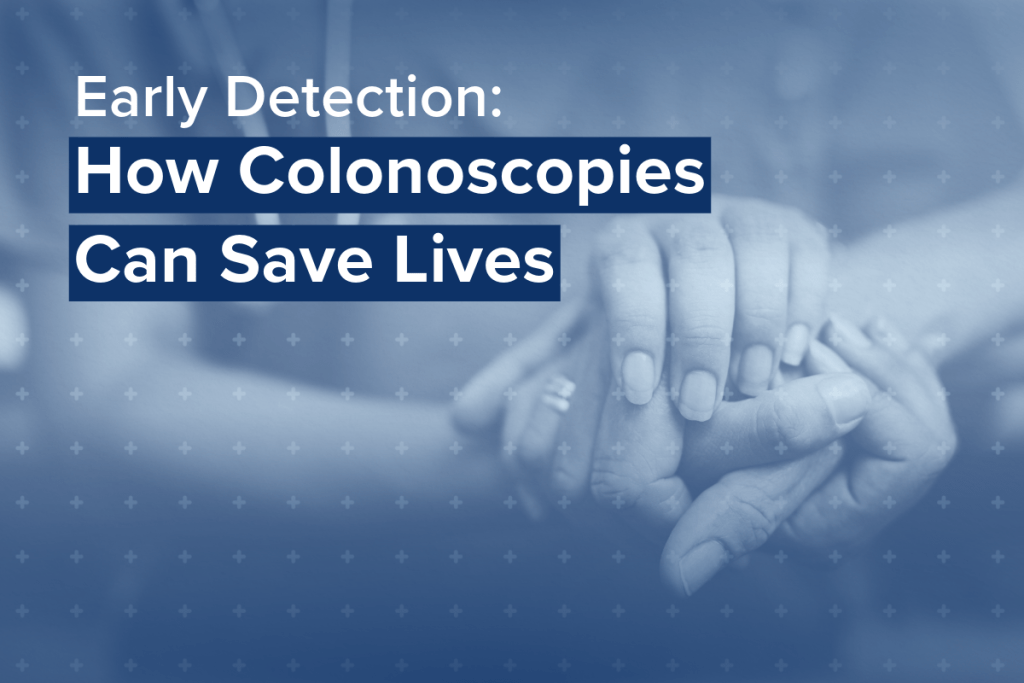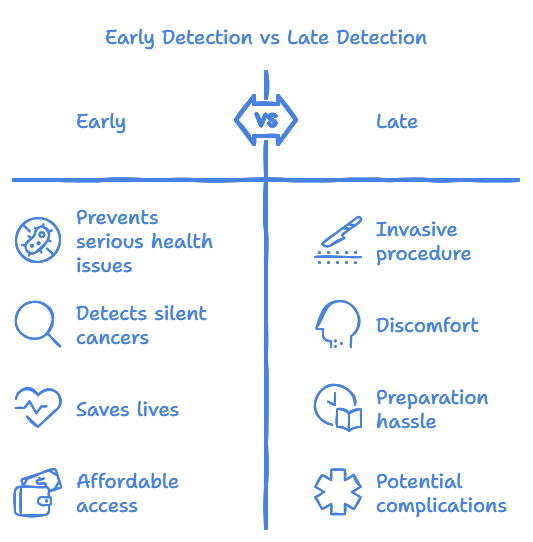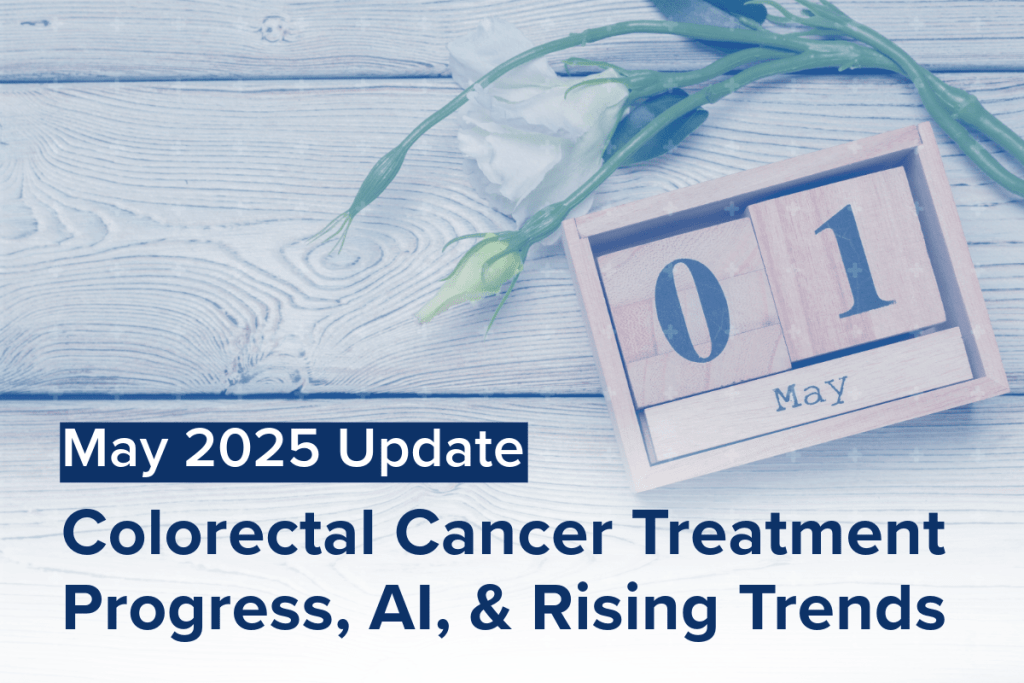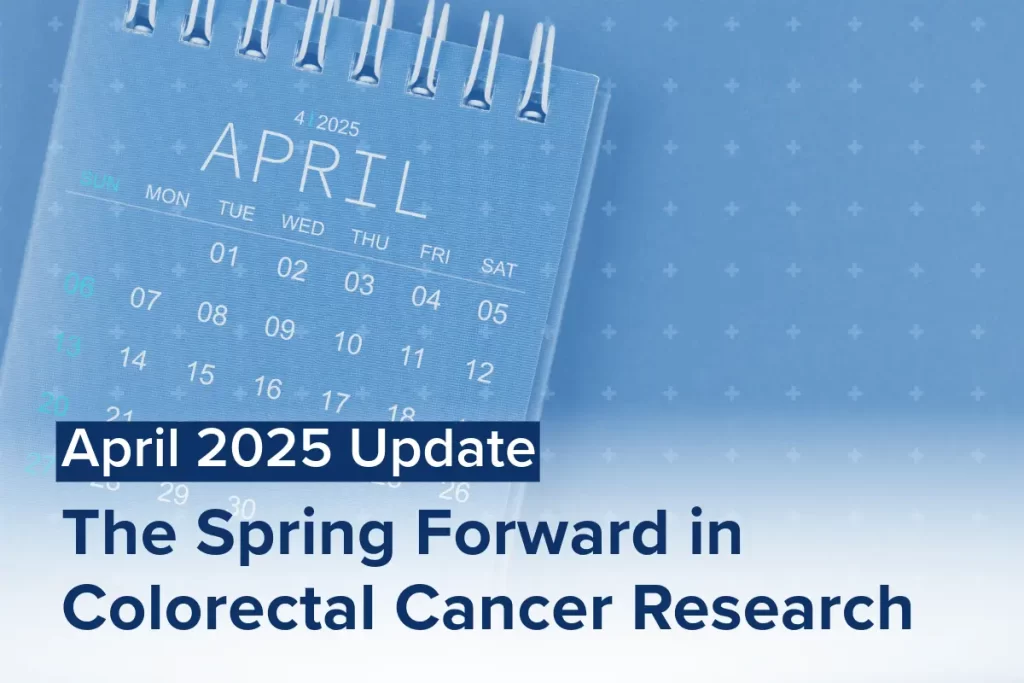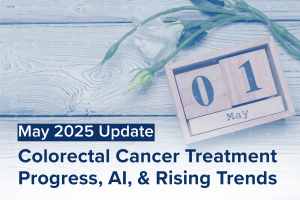Table of Contents
- Why Early Detection Matters for Colorectal Cancer
- Symptoms and Screening for Colorectal Cancer
- Screening Options for Colorectal Cancer
- Early Detection vs. Late Detection
- Colonoscopy: The Gold Standard for Detection
- Making Life-Saving Screenings Affordable
Early detection changes everything, especially when it comes to serious health issues like colorectal cancer. This type of cancer, among the most common, often develops quietly—until it’s well advanced. But here’s the good news: early detection can stop it in its tracks.
Screenings like colonoscopies give us a way to catch it early, when it’s easiest to manage. For those over 45 or with a family history of colorectal cancer, these screenings could be life-saving.
Related – Do You Have IBS? Can a Colonoscopy Help You Find Out?
Why Early Detection Matters for Colorectal Cancer
Colorectal cancer doesn’t usually start as cancer. It begins with small, harmless polyps in the colon, which can turn cancerous over time if they’re not removed. Here’s the catch: symptoms don’t typically show up until the disease has advanced, making it harder to treat effectively.
This is where colonoscopies play a game-changing role. During this screening, doctors can find these tiny polyps and remove them on the spot. This proactive approach can lower colorectal cancer risk by up to 68%! It’s a powerful tool, especially for high-risk individuals and those over 45.
Symptoms for Colorectal Cancer
Since early-stage colorectal cancer usually has no noticeable symptoms, getting screened is crucial. However, if symptoms do appear, they might look like:
- Changes in bowel habits, such as diarrhea, constipation, or changes in stool consistency
- Blood in the stool, which can range from dark to bright red
- Abdominal discomfort—think cramping, bloating, or ongoing pain
- Unexplained weight loss
- Persistent fatigue, even with enough sleep
Screening Options for Colorectal Cancer
There are several ways to screen for colorectal cancer, each with its own benefits:
- Colonoscopy: This is the most thorough method. Doctors can see the entire colon and rectum and even remove polyps during the screening.
- Stool-based tests: These tests, such as the fecal immunochemical test (FIT) and stool DNA test, detect hidden blood or abnormal DNA in stool samples.
- Flexible sigmoidoscopy: An alternative option that examines just the lower colon and rectum.
Early Detection vs. Late Detection
Timing makes a world of difference when it comes to colorectal cancer. Here’s how early and late detection stack up:
- Early Detection: When colorectal cancer is caught in its early stages, it’s often still contained in the colon or rectum, making it easier to treat. Treatments are typically less invasive, like removing polyps or minor surgery. The five-year survival rate for early-stage colorectal cancer is over 90%! With early detection, many people can recover fully, and sometimes, polyps can even be removed before they turn cancerous, stopping cancer before it starts.
- Late Detection: Late detection, on the other hand, means the cancer has usually spread, making treatment harder and recovery less likely. Advanced-stage treatments often involve chemotherapy, radiation, or complex surgeries, which come with more side effects and longer recovery times. Survival rates drop significantly for late-stage colorectal cancer, and the treatments themselves can take a toll on physical and mental well-being.
Colonoscopy: The Gold Standard for Detection
The idea of a colonoscopy can seem daunting, but knowing what to expect can help. During a colonoscopy, a thin, flexible tube with a tiny camera (called a colonoscope) is carefully inserted into the rectum, allowing the doctor to view the inside of the colon. If polyps or other issues are found, they can be removed right then and there, reducing the risk of them becoming cancerous.
Although some may feel nervous about this procedure, the benefits far outweigh the brief discomfort. It’s a minimally invasive process, generally safe, and most people return to normal activities the next day.
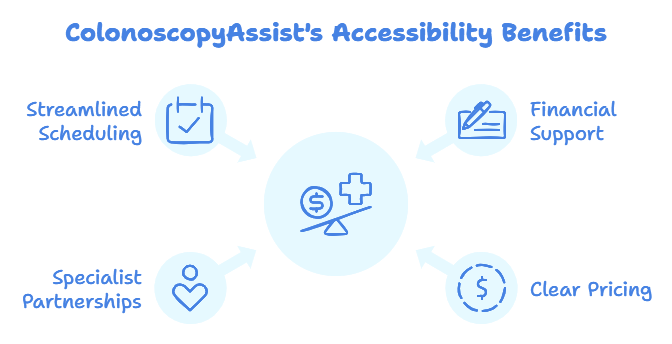
Making Life-Saving Screenings Affordable
Cost can be a significant barrier, especially for those without insurance. ColonoscopyAssist addresses this, making preventive care accessible for everyone. They connect patients with reliable specialists across the nation, making it easy to schedule a colonoscopy without hidden fees or hassle.
By partnering with experienced specialists, they make sure quality care is within reach for those who need it, helping more people access these essential screenings.
If you’re approaching the recommended age for a colonoscopy or have a family history of colorectal cancer, don’t wait. Schedule Your Screening Today!











